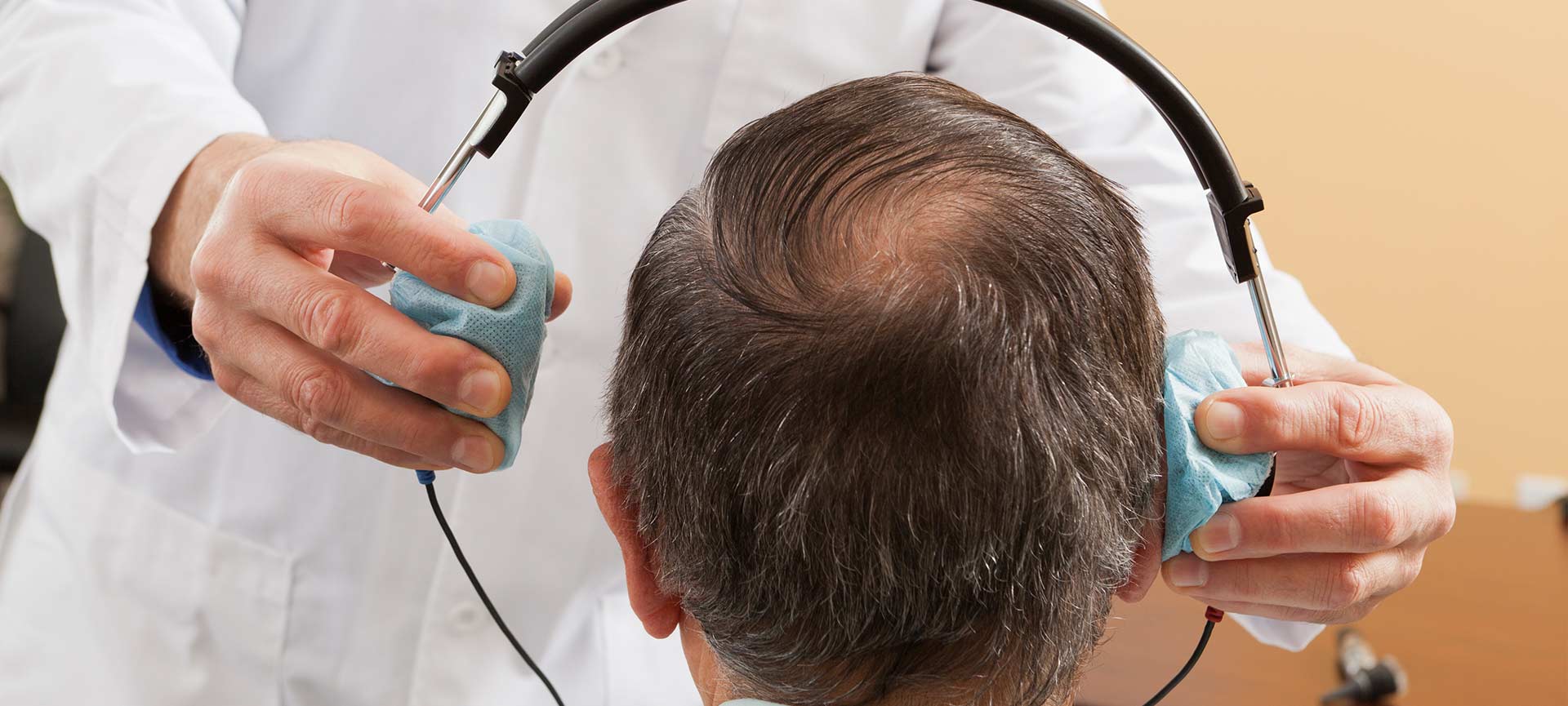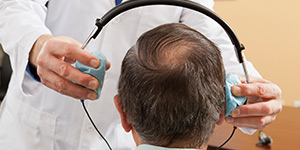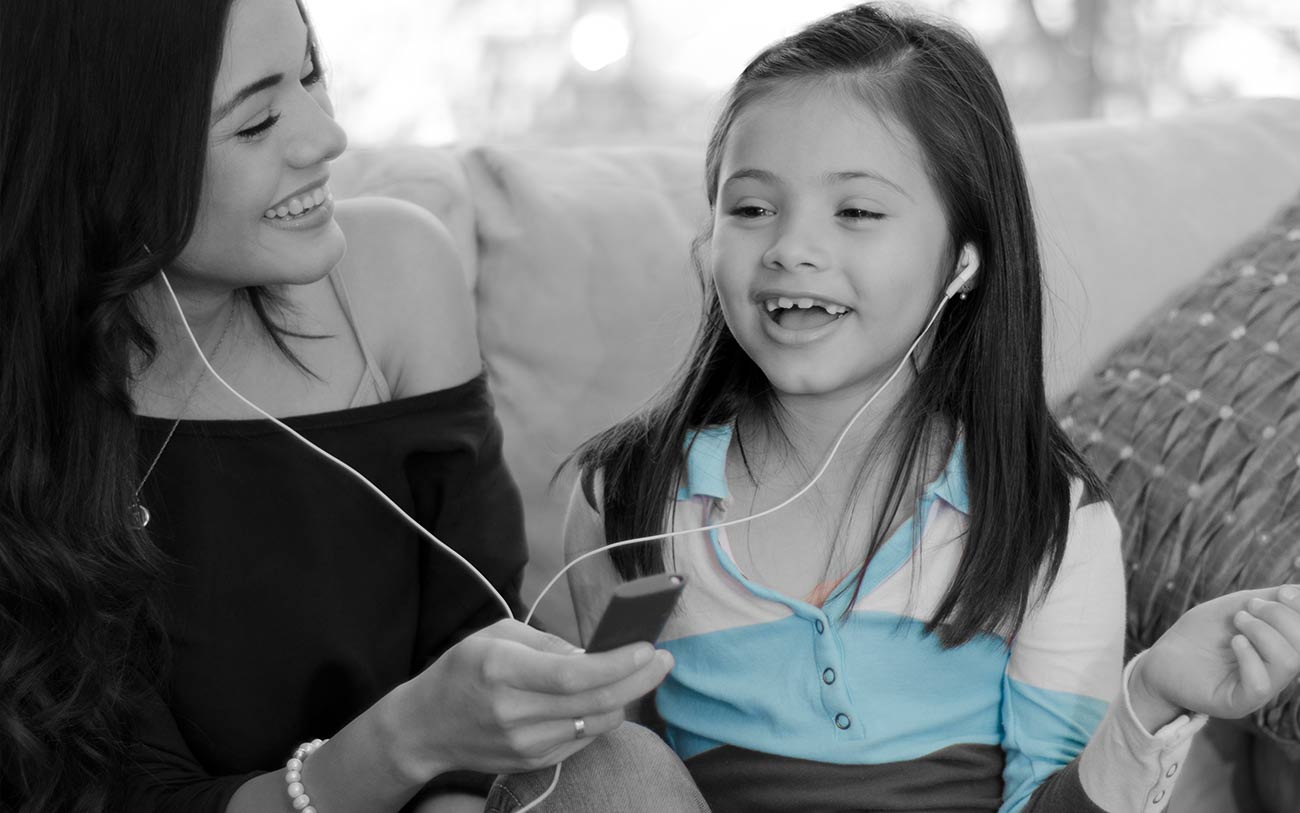Audiology at GBMC
Complete diagnostic and rehabilitative audiologic services
Audiologists provide patient-centered care with evidence-based prevention, identification, and diagnosis of hearing and other auditory disorders. Our audiologists provide patients and their families with innovative diagnostic and hearing evaluation options with personalized services to minimize the negative impact of these disorders, leading to improved outcomes and quality of life. We are privileged to have a state-of-the art facility with large audiometric suites, which are wheelchair accessible. Windows on the doors create an open feeling to reduce patient anxiety and claustrophobia.
Hearing conservation and education are important aspects of audiology. Whenever needed, custom hearing protection devices are dispensed and counseling regarding noise protection to prevent hearing loss is provided.
Our Services
Our Audiology Department and Hearing Aid Dispensary provide complete diagnostic and rehabilitative services for pediatric through geriatric populations. We offer:
- Comprehensive hearing evaluations for all ages
- Tympanometry
- Acoustic reflex test
- Otoacoustic emissions (OAE) test
- Auditory brainstem response (ABR) evaluation
- Videonystagmography (VNG)
- Newborn hearing screening
- Surgical and Rehabilitation services for Cleft Lip and Palate conditions
- Hearing Aid Dispensing
- Hearing Aid Repairs/Re-Programming
- Real ear measurement
Our Treatments
Hearing Aid Options:
MONAURAL VS. BINAURAL: Should I wear one hearing aid or two? Whenever hearing levels are the same between ears, we will always recommend that the patient wear two hearing aids. There is a substantial amount of research, which suggests that the brain is meant to hear in a "balanced" fashion with equal input from both ears. Occasionally, there are cases of asymmetric hearing levels (hearing levels which are different between ears) in which we might not recommend two hearing aids.
STYLE OPTIONS: Which style is best for me? Hearing aids come in a variety of sizes and styles. Some are custom products that fit completely in the ear while others hook over the back of the ear. The degree and configuration of your hearing loss will often dictate which style is most appropriate for you. However, other factors including dexterity issues and cosmetics are also considered when selecting the most appropriate style.
TECHNOLOGY OPTIONS: The majority of hearing aids dispensed today are digital products. However, you will still have the option of selecting a "technology-level" when ordering hearing aids. Hearing aid technology ranges from "economy" to "ultimate." Within this range, features are either added or subtracted. For instance, higher end products have additional features to accommodate more complex listening environments. Patients are encouraged to consider their lifestyle and budget when making decisions regarding technology levels.
Implantable Options:
BAHA: The BAHA system is a surgically-placed device with external attachment that picks up sounds and transfers the signal directly to the inner ear (cochlea). This is an alternative to traditional hearing aids for patients who have complete hearing loss/deafness in one ear or for patients with conductive or mixed hearing loss that cannot be managed medically.
COCHLEAR IMPLANTS: Cochlear implants are surgically-placed device with external components that picks up sounds and transfers the signal directly to the auditory nerve. This option is reserved for patients with severe to profound hearing loss who receive limited benefit from hearing aids.
Your First Appointment
What you need to bring for your appointment:
- Driver's license or picture identification
- Health insurance card(s)
- Physician's referral
- Records supplied to you by your referring or primary care physician
- Co-pay
Forms you need to fill out and bring with you:
- Patient Registration Form
- Authorization for Release of Protected Health Information to a Spokesperson
- Permissions / Acknowledgements
- Faculty Financial Policy
- Patient History
What will happen once you arrive?
Please arrive to the department 30 minutes prior to your scheduled appointment time. You will be required to sign in at the front desk. An available front office associate will assist you through the registration process, which includes verifying your completed forms, copying your health insurance and identification cards, and collecting your co-pay. Once the registration process has been completed, you will be on your way to better hearing health.
Related Services

Cochlear Implant Center
Our multidisciplinary team will work together to determine if a cochlear implant is appropriate for you. We serve individuals with moderate to profound sensorineural hearing loss, in both ears, and individuals with single-sided deafness, during candidacy, surgery, and follow-up.

Ear Nose and Throat - Otolaryngology

Diabetes & Nutrition at the Geckle Center
Manage diabetes with confidence — GBMC’s ADA-recognized Diabetes & Nutrition Center provides education, tools, meal planning, and care to improve outcomes and quality of life.







